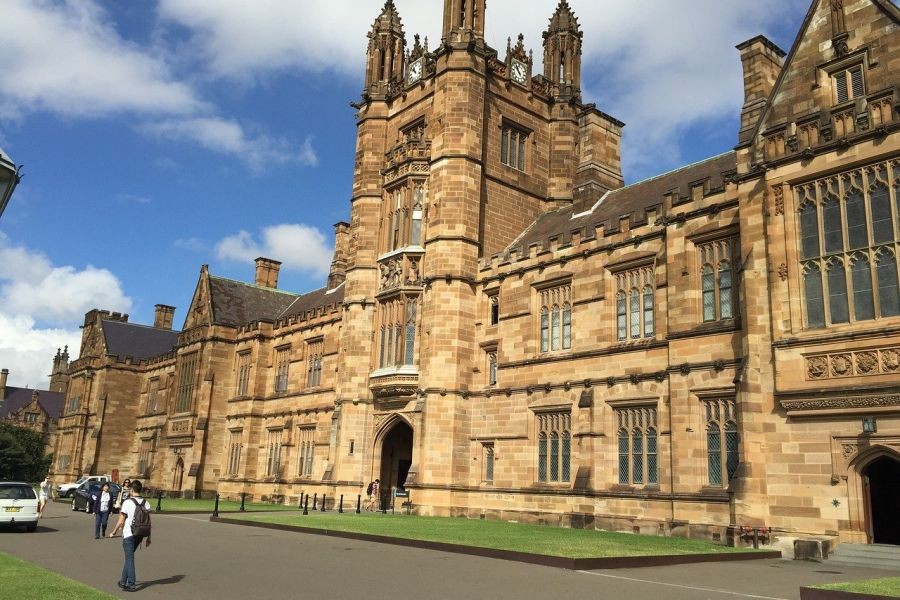In the dynamic realm of startup investments, high net worth investors (HNWIs) often operate behind closed doors, making strategic choices that can significantly influence the success trajectory of budding companies. Understanding their decision-making processes is crucial, especially in Australia's rapidly evolving economic landscape. As the Australian Bureau of Statistics (ABS) highlights, the startup ecosystem in Australia has been flourishing, with a significant increase in tech startups and a robust investment climate. This article delves into the secretive investment strategies of HNWIs and how these can be leveraged by startup founders and supply chain experts.
Behind-the-Scenes Insights: How HNWIs Select Startups
High net worth investors are not just looking for a safe bet; they seek innovation, potential for high returns, and alignment with their existing portfolios. Here are several key factors they consider:
- Market Potential: HNWIs are keen on startups that demonstrate a significant market need and scalability. According to a report by the Reserve Bank of Australia (RBA), sectors like fintech and healthcare have shown immense growth potential in recent years.
- Leadership Team: The competence and vision of a startup's leadership are critical. Investors often conduct thorough background checks and gauge the team's ability to execute their business plan effectively.
- Innovative Edge: A unique product or service that disrupts existing markets can attract HNWIs. For instance, Australian tech startups leveraging AI and blockchain are gaining traction due to their innovative solutions.
- Financial Health: Strong financial metrics and a clear path to profitability are essential. Investors scrutinize cash flow statements, revenue projections, and expense management.
Case Study: Atlassian – A Success Story
Founded in Sydney, Atlassian is a prime example of a startup that captured the attention of high net worth investors early on. Here's how they did it:
Problem: In the early 2000s, software development teams lacked efficient collaboration tools, leading to project delays and communication breakdowns.
Action: Atlassian introduced Jira, a project management tool that offered a streamlined solution for software teams. Their focus on continuous improvement and customer feedback allowed them to refine their products effectively.
Result: As of 2023, Atlassian's revenue has surpassed $2 billion, with a global customer base and a portfolio of innovative products like Trello and Confluence.
Takeaway: Atlassian's success underscores the importance of addressing a clear market need and maintaining a commitment to innovation. For Australian startups, this case highlights the potential of leveraging local expertise to scale globally.
Pros vs. Cons of HNWI Investment Strategies
✅ Pros:
- Access to Capital: HNWIs provide substantial funding, enabling startups to scale rapidly.
- Industry Connections: Investors often bring valuable networks and partnerships.
- Strategic Guidance: Experienced investors offer insights that can refine business strategies and operations.
❌ Cons:
- High Expectations: Investors expect significant returns, which can pressure startups.
- Loss of Control: Accepting external investment often means giving up some level of control.
- Potential Misalignment: Differences in vision between investors and founders can lead to conflicts.
Common Myths & Mistakes in Startup Investment
Myth vs. Reality
- Myth: "Startups need to be in tech to attract HNWIs."
- Reality: While tech is a popular sector, investors are increasingly interested in diverse industries, including sustainable energy and health tech, as noted by the Australian Financial Review.
- Myth: "All investors want immediate profits."
- Reality: Many HNWIs are willing to wait for long-term gains if the startup shows strong potential for growth and innovation.
Future Trends & Predictions
In the next five years, Australia's startup ecosystem is expected to evolve significantly. The government's commitment to fostering innovation through initiatives like the National Innovation and Science Agenda is likely to attract more investors. Moreover, as sustainability becomes a pressing global concern, startups focusing on green technologies and eco-friendly solutions will likely see increased interest from HNWIs.
According to a Deloitte report, by 2028, it's predicted that 40% of Australian startups will incorporate AI-driven solutions, aligning with global trends. This shift presents both opportunities and challenges, with regulatory bodies like the Australian Competition & Consumer Commission (ACCC) playing a crucial role in ensuring ethical practices.
Conclusion
Understanding the investment strategies of high net worth individuals can empower Australian startups to attract the right partners and secure the funding necessary for growth. By focusing on innovation, scalability, and strong leadership, startups can position themselves as attractive prospects in a competitive market.
For those looking to delve deeper into this topic, consider exploring mentorship programs and networking opportunities offered by Australian startup hubs like Startmate and Sydney Tech Hub. Engaging with these resources can provide invaluable insights and connections.
What’s your take on the future of startup investments in Australia? Share your insights below!
People Also Ask (FAQ)
- How do high net worth investors impact startups in Australia? High net worth investors provide substantial capital and strategic guidance, boosting startups' growth and innovation, according to the Australian venture capital Association Limited (AVCAL).
- What are the biggest misconceptions about startup investments? One common myth is that all investors seek immediate returns. However, many investors are patient and value long-term growth potential.
- What are the best strategies for attracting high net worth investors? Startups should focus on demonstrating market potential, innovative solutions, and strong leadership to attract high net worth investors.
Related Search Queries
- How do high net worth individuals invest in startups?
- Startup investment trends in Australia
- Risks of investing in startups
- How to attract investors for a startup
- Top Australian startups 2023
- Impact of venture capital on startups
- Financial strategies for startups
- Sustainable startup investments
- Tech innovation in Australian startups
- Startup funding sources in Australia































